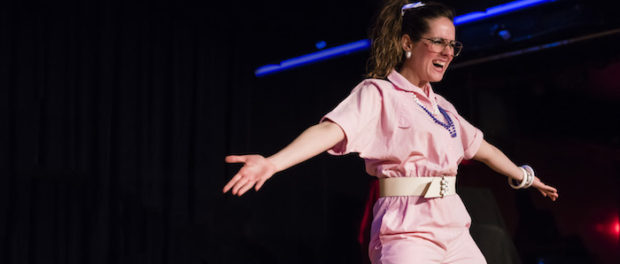Short Works Feminist Theatre Festival Grows
When Emily Murdoch started the Revolution They Wrote: Short Works Feminist Theatre and Performance Art Festival, in 2014 at Concordia, her goal was to rewrite the Vagina Monologues.
“I was directing the Vagina Monologues at Concordia every year, and I thought we needed something new, that I needed something new.” But when she held the competition to find a new writer, she was so excited about all the different entries that she changed the intent to a series of short pieces. “We wanted a mosaic or patchwork of ideas of what it means to exist in this society and world we live in as a feminist.”
The festival’s purpose has grown over the years. Murdoch notes that there are three main goals. “Our first goal would be to build up feminist arts and through that provide feedback and support to artists. We want to let people know that this is something that is encouraged.”
The second goal is about bringing together diverse groups of people who consider themselves feminist. “There are many definitions for feminism and they can be inclusive or not inclusive. We want to bringing together different communities to broaden the scope of what it means to be a feminist or a feminist artist.”
Finally, she wants the festival to “validate and celebrate lived experience of people who consider themselves feminists.”
In sum, as she says, “I want more feminist art.”
While the works are feminist, everyone is welcome to attend. The works chosen are intended to challenge and compliment one another as a dialogue, and the conversation is open to all. “I am surprised how many people it reaches,” says Murdoch. “A lot of people show up expecting one thing, and they get something different out of it.”
The jury selection process is careful, and an important aspect of selection is finding “perspectives that we don’t see a lot” as well as “people who are really passionate about what they’re writing about.”
Ultimately, she hopes to have a variety of perspectives. Murdoch says, “I live in a world that is fractured a lot of the time. Some people get shut out for being too radical or not radical enough. My vision is to bring these perspectives together and building something where there’s something for everyone and something that challenges everyone.”
Of the pieces being shown, there is a wide variety in the material being showcased and it ranges from humorous to serious. For example, in Manners, the daughter of an earl fall for a “footman” who is probably better called a “footwoman.” Like Jane looks at the sexual assault of an unconscious woman at a fraternity party, based on verbatim trial documents and personal stories.
Murdoch promises that the festival will be “very, very good” and that she’s grateful for the MainLine theatre for allowing them to expand the festival. “I feel in awe of the artists and what they’re doing and how they’re applying themselves,” she says. “They’re the most fabulous people ever.”






